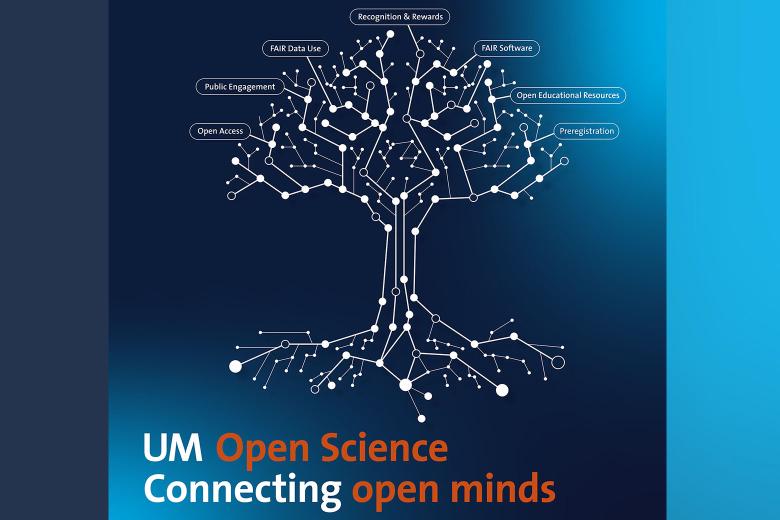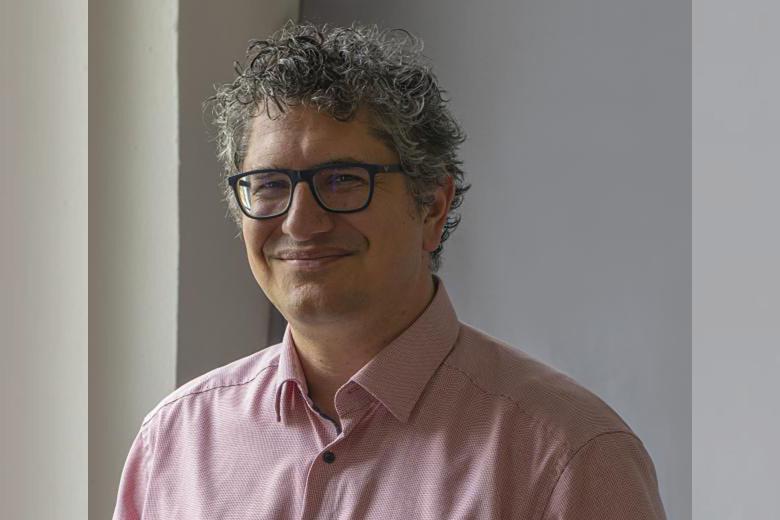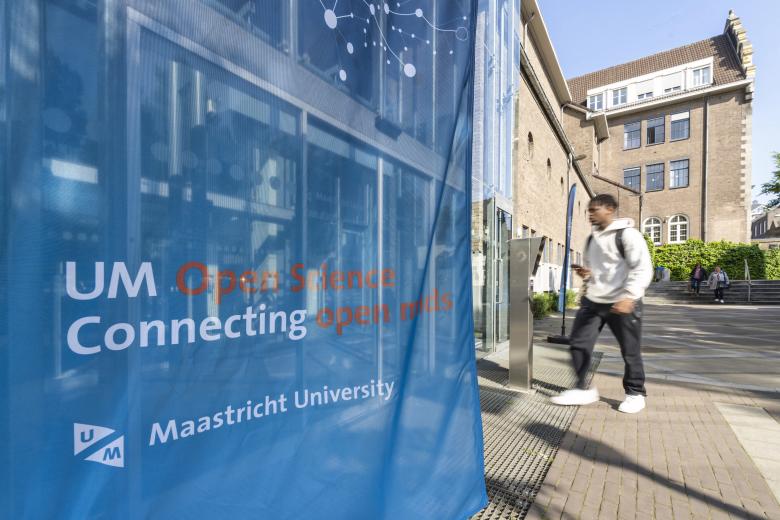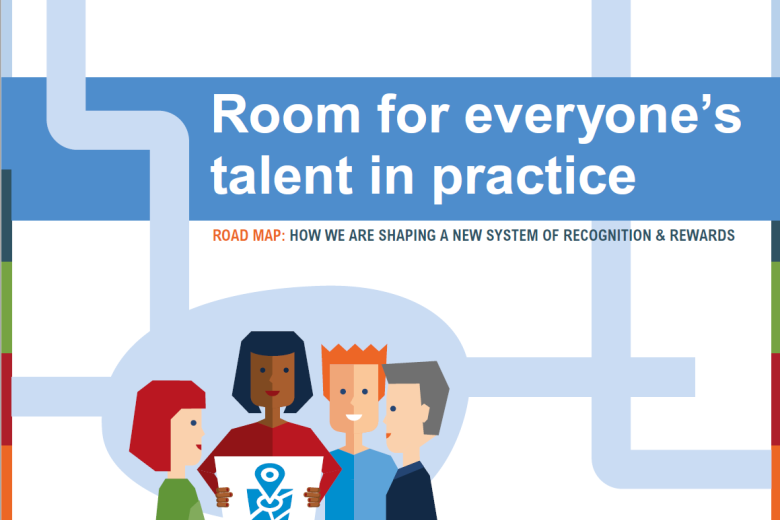Open Science
Universities and research institutes worldwide are working on the realisation of "Open Science"; Maastricht University (UM) is one of them.
UM endorses the principles of Open Science, offering its academics support to put these principles into practice and make science "as open as possible, as closed as necessary".
In this way, we strengthen ties with our communities and improve our relationships on many levels, from regional to international and from citizens to professionals.
Open Science can contribute to making science more visible, in the broadest sense of the word.
What exactly is Open Science?
Open Science is a new approach to scientific research. Its aim is to strengthen collaboration, both between individual researchers and between other parties and scientists. Open Science makes research more transparent, controllable, faster, more efficient, reproducible and more sustainable. The idea is that civil society organisations, patient organisations, companies and other organisations can all benefit from easy access to scientific research.
The following themes are important spearheads in UM's Open Science policy:
Recognising and rewarding scientists in a different way
Currently, scientists are usually judged by the number of scientific papers they have published and the research grants they have acquired. Open Science also stands for recognition and appreciation of other issues such as educational activities, leadership qualities and social impact (more information on this topic).Changing our system for recognising and rewarding is crucial for bringing about the transition to Open Science.
- Open Access
This refers to a broad international academic movement promoting free online access to scientific information, such as scientific articles, books and book chapters. In this model, the author or university pays, not the reader, thereby enabling full access to everyone. UM has steadily been increasing its Open Access (OA) percentage and we are aiming for 100% of our published material to become OA (preferably Gold or Diamond OA, with Green OA as a backup, for example through Taverne). - FAIR data use
Research data (both quantitative and qualitative) must be Findable, Accessible, Interoperable and Reusable (FAIR) to maximize the value of our work. The FAIR principles should therefore form the basis of our research data management strategy. - FAIR software
It is an umbrella term that includes any piece of code, script, package, tool, library, or programme written or used for research. It therefore applies to research tools, research analyses and virtual research environments. We consider FAIR data and FAIR software as complementary to each other. - Public engagement
Often used synonymously with Citizen Science, it involves engaging the public (both individuals and organisations) in drawing up research questions, conducting research and communicating the results. Specific examples include crowdsourcing, in which citizens are involved in processing of research data, and participatory science, in which participants are involved in steering the direction of the research from problem definition to data collection. - Open Educational Resources (OER)
Teaching, learning and research materials in any medium (digital or otherwise) that are released under the terms of an open license, which allows it to be freely used for educational purposes. OER can be any type of educational material and they include Open Access publications. Their scale varies from something as small as a class handout or image to something as large as a textbook or online course. - Preregistration
This is the idea that research designs are published before the actual research is carried out. The design is as specific as possible and addresses at least the research questions and analysis plan and, if applicable, the hypotheses and the data or data collection method that will be used for testing. The ultimate goal of preregistration is transparency by enabling a distinction between confirmatory and exploratory analyses.
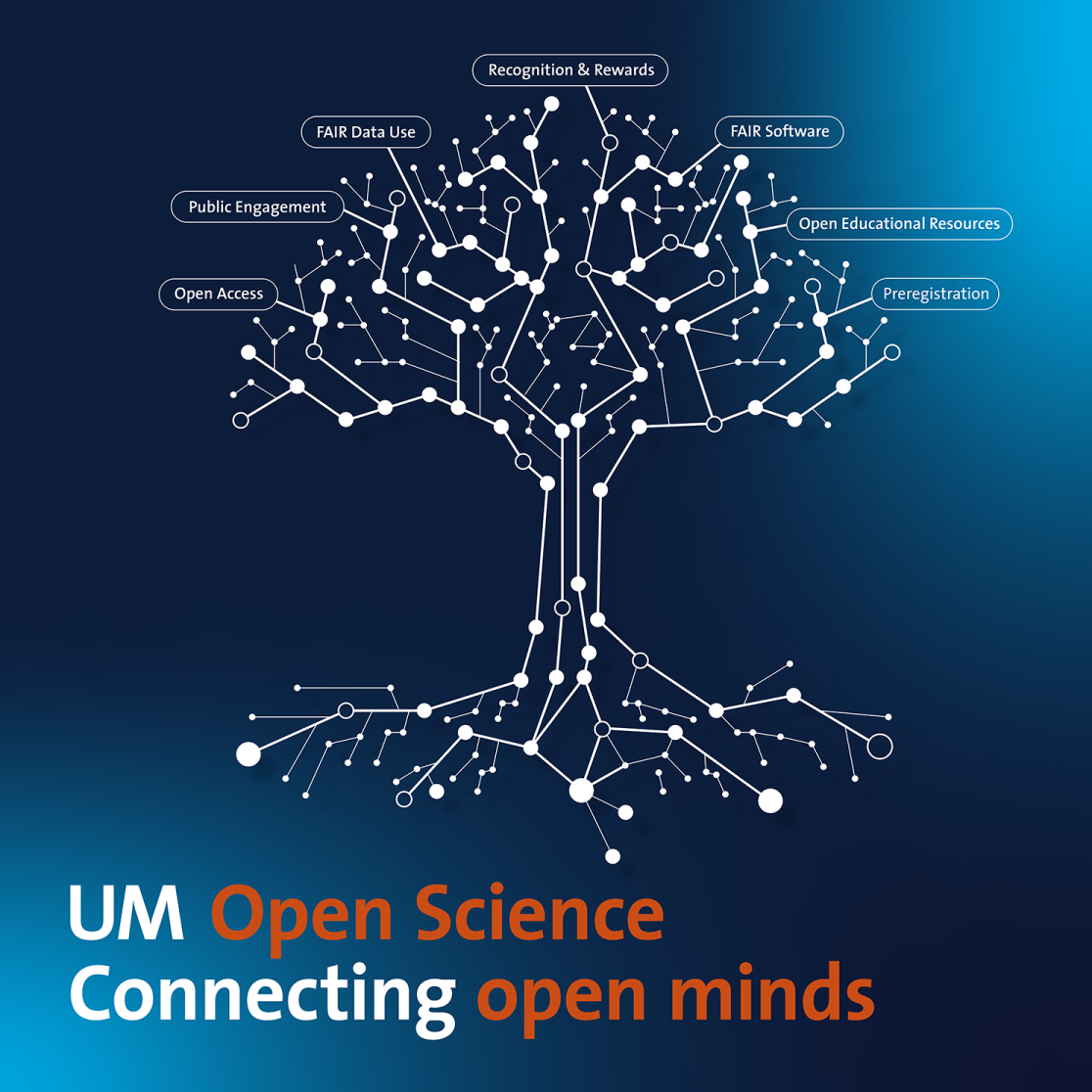
Open if possible, closed if necessary
Drawn up at the request of the Netherlands deputy minister of Education, Culture and Science, the National Plan Open Science has the support of Dutch universities and other parties. The plan aims to help implement the country’s ambitious Open Science policy.
Also download the UM Open Science policy
The Research Data Management Code of Conduct
Proper research data management (RDM) is an essential part of the research process and is an intrinsic part of the UM Open Science policy. The FAIR principles form a guideline for RDM, but RDM also deals with other aspects of the research process, such as data security, data retention, data privacy, etc. The Research Data Management Code of Conduct, provides guidance to UM’s academics on how to do RDM in a responsible and productive way.
National Open Science Festival 2024
On 22 October 2024, Maastricht University (UM) proudly hosted the 4th edition of the National Open Science Festival. Guided by the motto ‘Meet, share, inspire, care’ over 350 visitors from the education and research sectors across the Netherlands gathered for a day of engaging discussions, workshops, and networking opportunities, all focused on advancing Open Science. The aftermovie below gives a good idea of how the day was experienced at UM.
What can researchers do?
Open Science – it’s basically a matter of doing it. It can be applied in all research phases (e.g. open pre-registration in the preparatory phase, applying citizen science in data collection, publishing open access after the research is completed).
Researchers who want some help on how to apply open science practices can contact advisers within their faculty via the following portals.
- Research Data Management portal
The Research Data Management portal supports UM researchers making their data FAIR. - Open Access portal
You can find all UM information on Open Access publishing and sharing of research output through this portal provided by the University Library - Open Educational Resources pagina
UM overview page on Open Educational Resources (OER), educational, learning, and research materials that can be used, created, and reused.
For general questions or comments about Open Science, please contact our Chief Open Science Mariëlle Prevoo or Open Science Officer Dennie Hebels.
With Open Science we want to provide more transparency because transparency is the foundation of the public’s trust in science and science’s ability to question and correct itself.
Prof. dr. Pamela Habibović
Rector Magnificus Maastricht University
